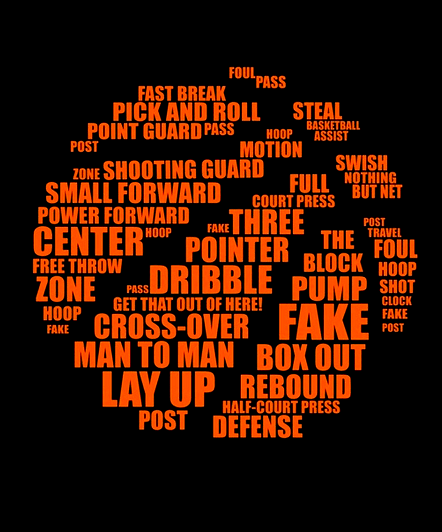REMEMBER:
13 - 53 years old!
Any basketball ability
Any fitness level
NEW WOMEN'S BASKETBALL TEAM
From September 2024, London Knights Women's Basketball program entered a new phase of development. Now, that Jubilee Funding has ended we have piloted new, sustainable and yet affordable model that attracts more and more female members.
Come and test it out yourself on Tuesday https://knights.classforkids.io/info/564 or on Thursday https://knights.classforkids.io/info/565
About the Project
Key Learnings
Key Actions
Booking
THIS IS WhERE WE STARTED in November 2022....
Women are less active than men, with 27% of women inactive and 15% fairly active but doing less than the recommended amount of physical activity. Women of lower socio-economic status (L-SES) are less active, with 32% of those in semi/routine occupations (NS SEC 6-8) and 37% of the long-term unemployed (NS SEC 8) inactive; 14% of both groups are fairly active.
Women of L-SES are the least likely to be sufficiently physically active and are missing out on the benefits of improved physical and mental health as well as a reduced risk of disease. 33% of women from NS SEC groups 6-8 are inactive compared to 17% of women from NS SEC groups 1-2 (higher/lower managerial,
administrative and professional occupations). Despite their greater need, women of L-SES are not attaining the personal financial, emotional, social and intellectual gains associated with regular physical activity. Those with an intention to become more physically active are most likely to do so and would benefit from appropriate opportunity and support. Our program will therefore focused on women of L-SES with an
intention to become physically active.
We will explore the barriers that prevent women of L-SES from moving from intention to action, establish
recommendations for physical activity, support women of L-SES to move along the behaviour change journey
from intention to becoming and staying active. There are some barriers to being active that are particularly
relevant to this group: life uncertainty, lack of financial independence, familial responsibilities and mental-ill
health.
KEY LEARNINGS
1. Mothers will often put their needs behind everyone else which makes prioritising physical activity difficult.
2. Barriers to activity are multi-layered, with a mix of practical barriers like cost and emotional barriers like self-consciousness
3. Women change over time, life events such as having children and declining health can reduce confidence in even the most active of participants.
4. Influences of friends and family can both enable and inhibit activity, the support of a friend’s invitation can be a great facilitator but the lack of practical support can be a great barrier
5. Something that seems as simple as going for a walk can be a mammoth effort for someone struggling with their mental health.
6. A fear of exercise and the exercise environment can have real impact on women’s physical activity choices and their ability to exercise.
7. The process of deciding to start and maintain exercise can be long and thwarted with practical, competence and motivation barriers.
8. Every interaction with an activity provider has the potential to fuel those barriers or to alleviate fears.
9. The importance of coaches/ instructors who are able to relate well to women who lack confidence and/ or are anxious.
KEY ACTIONS:
1. Organise all women inclusive sessions
2. Provide acceptance and stimulating environment for all abilities
3. Enhance their basketball skills at individual pace by dividing them into 2 groups based on their fitness, skills and motivation level
4. Provide safe and stimulating environment to continue basketball after this funding stops!

OUR PROMISE:
We will provide activities where:
1. Costs and payment schedules are not prohibitive for those on low-incomes.
2. Women can feel comfortable regardless of their competence and physical attributes, where emphasis is placed on togetherness and fun.
3. We'll keep the conversation going, even if there is a missed class here and there, a nudge in the right
direction might be just what they need.
4. Mums and daughters can be active together,
5. Think about programming; women’s only sessions throughout the day, beginners only classes, classes with gradual progression, new starters sessions to meet the Coaches and see the environment, or pre-class ‘learn the moves’ sessions.
6 Offer exercise support or mentoring, to support women to get active.
7. Advise on GPs support to encourage women to try activities most suited to them.
8. Review the cost of our sessions to ensure that women on a low income can access them.
9. Offer a chance to socialise, build a sense of community, share experiences, and make new friends..
PROJECT DELIVERY:
1. Indices of Deprivation 2019 - Ward level summary measures for London, April 2020 indicates London wards with the highest and lowest average score on IMD 2019 (index of multiple depravation) as:
Golborne, Kensington and Chelsea (46.6)
Notting Dale, Kensington and Chelsea (40.3)
Dalgarno, Kensington and Chelsea (39.5)
making them 1st, 9th and 11th most multiple deprived wards in London.
2. Delivery location - North Kensington
3. Target group: Women 18+
4. Delivery term - throughout 2023 - 50 weeks of delivery
5. 1.5h session once per week
6. BE licensed coaches with the First Aid certificate, safeguarding in sports certified, with enhanced DBS will work weekly on the session delivery
7. Sessions tailored to meet the needs of the women who will register with emphasis on building your stamina and self-confidence
8. Making 'habit for life' and not only for 1 year of the Sports England funding
9. Providing new employability skills in the sports and leisure industry
10. Ensuring sustainability of the program in 2024 by introducing 25% charge of the full fees in Q2 2023, 50% in Q3 2023 and 75% fees chargeable in Q4 2023.
BOOKING:
For the full training schedule and booking please visit https://knights.class4kids.co.uk













